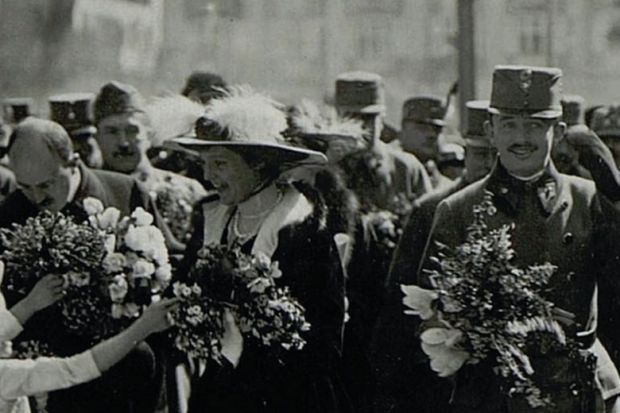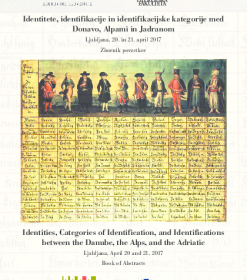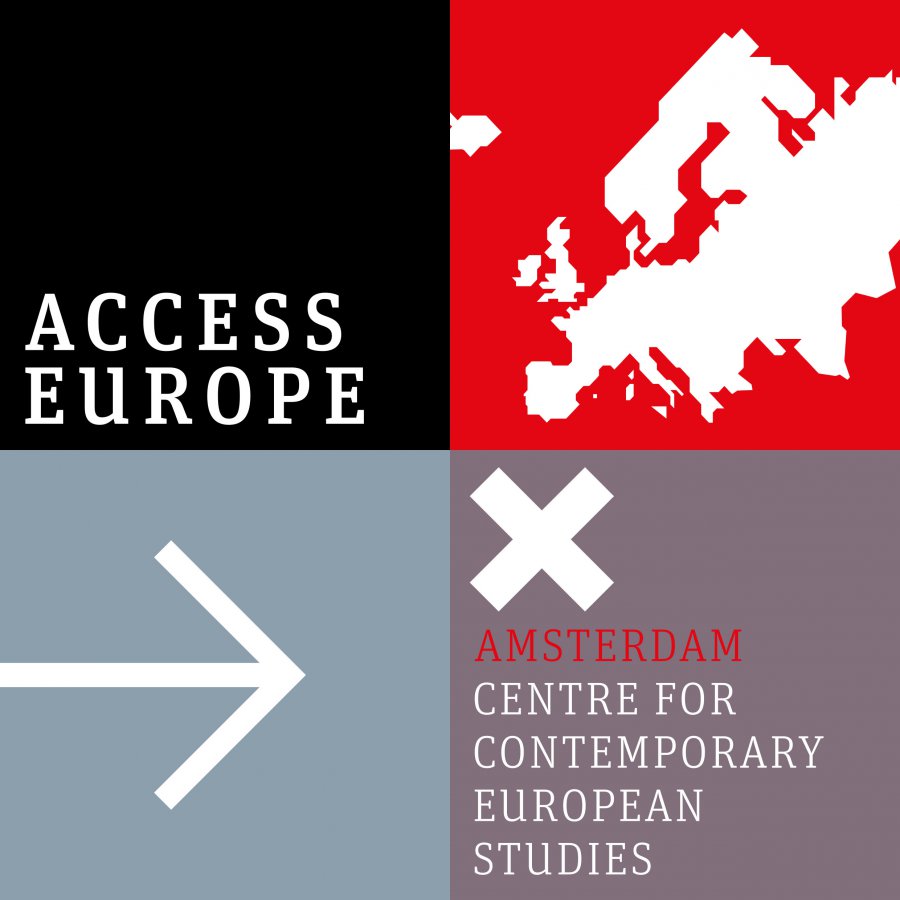Objavljena je snimka konferencije Identities, Categories of Identification, and Identifications between the Danube, the Alps, and the Adriatic održane u Ljubljani 20. i 21. travnja 2017. na kojoj su sudjelovali konzultant projekta Pieter M. Judson i član projekta Nikola Tomašegović.
—
SISTORY
HISTORY OF SLOVENIA
Identities, Categories of Identification, and Identifications between the Danube, the Alps, and the Adriatic
Language: English
Type of publication: Video
Year: 2017
Keywords: identitete, identifikacija, nacionalizem, habsburška dediščina, identities, identification, nationalism, Habsburg legacy
Publisher(s): Oddelek za zgodovino Filozofske fakultete Univerze v Ljubljani, Ljubljana, Inštitut za novejšo zgodovino, Ljubljana, Ludwig Boltzmann-Institut für Historische Sozialwissenschaft, Wien, Muzej novejše zgodovine Slovenije, Ljubljana
Co-author(s): Tamara Scheer, Kaja Širok, Marko Zajc, Rok Stergar
Permalink: http://hdl.handle.net/11686/37958
Contributions:
Stefan Donecker: Identity and Identification in Premodernity: The State of the Debate 35 years after John Armstrong’ s Nations before Nationalism
Ümit Eser: Before Becoming Bulgarians: Pre-National Identities of the Orthodox Christian Communities in Eastern Rumelia, 1878-1908
Jernej Kosi: When the Slovenes Encountered the Slovenes: Ethnic Boundaries and the Process of Nationalisation in Prekmurje after the Dissolution of Austria-Hungary
Daniel Heler: Ethno-Genesis of Gorani People and ‘Deviant’ Contemporary Histories of Kosovo
Before the Nations, Beyond the Nations – Panel 1 Discussion
Tamara Scheer / John Paul Newman: Donations Requested: The Imperial, National, and Transnational Identities of The Ban Jelačić Association for Disabled Veterans and their Families in Vienna and Zagreb
Robert Shields Mevissen: Identification in the Danube Empire: Shaping Riverine Transformations in the Late Habsburg State
Igor Vranić: Political Patriotism in the Late Habsburg Empire: The Case of Izidor Kršnjavi
Imperial, National, Non-National – Panel 2 Discussion
Karin Almasy: Postcarding Identities in Lower Styria (1890–1920): The Linguistic and Visual Portrayal of Identities on Picture Postcards
Susanne Korbel: Staging Similarities, Staging Differences: (Jewish) Volkssänger and Their Performance of Habsburg Identities
Clemens Ruthner: Colonial Habsburg: The Bosnian Foreigner in Literary Texts of Imperial Austria, ca 1900
Anita Buhin: “Naše malo misto” (Our Small Town): Yugoslav Mediterranean Dream
Defining, Performing, and Staging Identities – Panel 3 discussion
Pieter M. Judson: People and their Categories: Creating Difference from Below and from Above in the Context of Empire
Daniel Brett: It’ s Not About the Nation or Ethnicity: Identity, Politics, and Society in the Romanian and Irish Countryside 1900-1947
Ivan Jeličić: The Typographers’ Community of Fiume: Between Spirit of Category, Class Identity, Local Patriotism, Socialism, and Nationalism(s)
Martin Jemelka / Jakub Štofaník: Being Modern Christian and Worker in the Czechoslovak National State 1918-1938
Peasants, Professionals, Workers – Panel 4 discussion
Marta Verginella / Irena Selišnik: The First Publicly Active Slovene Women on the Intersection of National Identities and Multinational Space
Martina Salvante: Renegotiating Identity: Disabled Veterans in Trentino and South Tyrol
Marco Bresciani: Country for Nationalists? State- and Nation-Building in Post-Habsburg Interwar Istria
Identities in Transition – Panel 5 discussion
Etienne Boisserie: Family Networks and “Generation Key” in the Renewed Approaches of Social Questioning of the Slovak Elite at the Beginning of the 20th Century
Nikola Tomašegović: Statistical Nation-Building in Civil Croatia and Slavonia during the Second Half of 19th Century
Filip Tomić: Serbs in Croatia and Slavonia 1908 – 1914: The Contested Construction of an Ethnic Category, Conditions of its Deployment and the Issue of Its Reception
Luka Lisjak: “Changing the Nation’s Character”: The Slovenian Tradition of Critical National Characterology and Its Role in the Intellectual Definitions of National Identity in the 20th Century
Panel 6 discussion
Tomasz Kamusella: Concluding remarks
http://www.sistory.si/SISTORY:ID:37958?language=en




